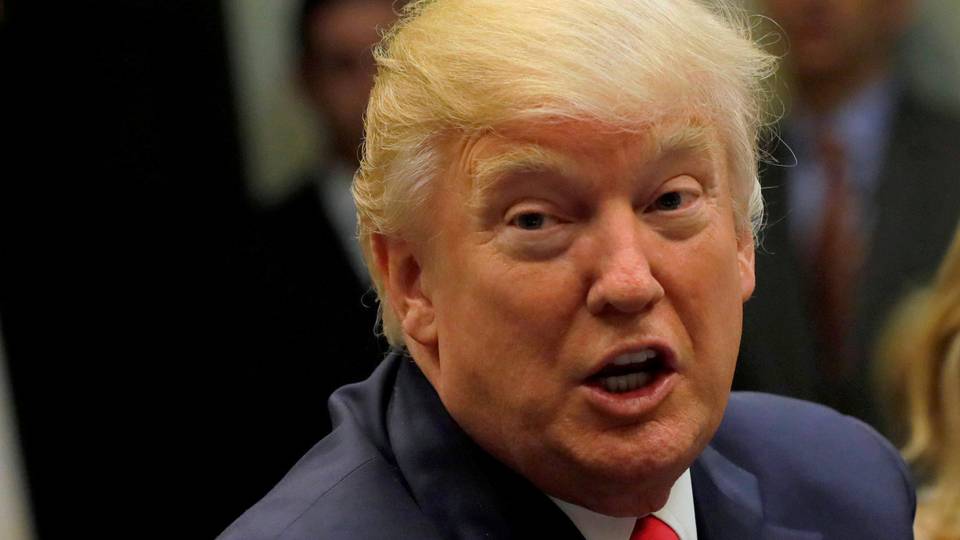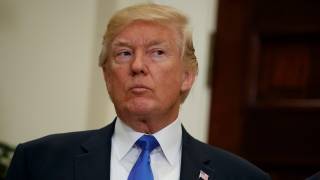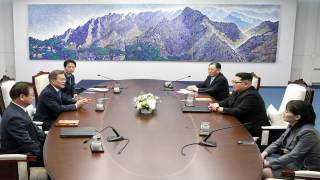President Donald Trump Cancels North Korea Summit
Cites ‘anger and open hostility’ in recent North Korean statement
President Donald Trump on Thursday called off the planned summit with North Korea, writing in a letter to the country’s leader that he didn’t want to go forward with the meeting because of “tremendous anger and open hostility displayed in your most recent statement.”
Mr. Trump had hoped to use the meeting, set for June 12 in Singapore, to end North Korea’s nuclear program in return for rolling back sanctions.
In the run-up to the proposed summit, Mr. Trump had said that if North Korea cooperated and relinquished its nuclear weapons, the country’s leader, Kim Jong Un, could expect that his regime would remain intact and the country would experience an economic revival.
But increasingly combative statements from North Korea’s leadership in recent days dimmed prospects for the summit, with White House aides saying this week they gave it a 50-50 chance of collapsing. Mr. Trump, eager for a deal that would rid the Korean peninsula of nuclear weapons, persevered in hopes of salvaging the summit. Some of his allies believed that if he were successful, he would merit a Nobel Peace Prize.
North Korea’s rhetoric grew steadily more threatening. This week, North Korea’s senior envoy for U.S. affairs threatened to cancel the summit and warned that the country could inflict on America an “appalling tragedy that it has never experienced nor even imagined.”
In his letter to Mr. Kim, Mr. Trump wrote, “I felt a wonderful dialogue was building up between you and me, and ultimately, it is only that dialogue that matters. Some day I look very much forward to meeting you.”
He added that if Mr. Kim changed his mind with respect to the summit “please do not hesitate to call me or write.”
The Dow Jones Industrial Average fell more than 260 points in the wake of Mr. Trump’s announcement, adding fresh uncertainty as stocks already were showing signs of weakness. Gold—a frequent financial safe haven for investors—broke above $1,300 an ounce for the first time in over a week.
White House officials said Thursday the summit could be revived at some point, suggesting that Mr. Trump’s letter was only the latest turn in a continuing negotiation.
One official said that it was “wise” of Mr. Trump “to walk away for the time being.”
Another senior White House official said the president wants a summit to happen but only under the right circumstances. Even after seeing encouraging developments following Mr. Pompeo’s visits to Pyongyang, much had also happened to make a meeting unfeasible at present, the official said. It was the president’s decision alone to cancel the meeting, which he did Thursday morning, the official said.
House Speaker Paul Ryan (R., Wis.) said the U.S. would continue to work with its allies toward a peaceful resolution to tensions on the Korean Peninsula, but that would require “a much great degree of seriousness from the Kim regime.” And he urged the U.S. not to relent on the maximum pressure campaign of sanctions against Pyongyang.
The summit cancellation damps hope in Japan for progress in tackling the threat Tokyo faces from North Korea’s missiles and for a resolution of a dispute over Japanese citizens abducted by Pyongyang.
Japanese Prime Minister Shinzo Abe praised Messrs Trump and Moon for their diplomatic efforts with North Korea, although officials in Japan have privately been skeptical of major breakthroughs from summit talks. Mr. Abe opted to await the result of the U.S.-North Korea summit before attempting to engage North Korea in his own direct diplomacy.
Even after the U.S. and North Korea agreed on a summit date and venue, it was clear that substantial gaps remained. On Tuesday, Secretary of State Mike Pompeo acknowledged that the U.S. was still trying to ensure that the sides had a “common understanding” of “the contents of what would be discussed.”
A major gap, according to experts, is whether the U.S. and North Korea shared the same understanding of “denuclearization.” The Trump administration envisioned a rapid process—perhaps taking less than a year—in which important sanctions relief would come only at the end. Mr. Kim spoke about a prolonged process in which sanctions relief would come earlier.
Both sides in recent weeks had been seeking to shape the summit agenda. On Thursday morning, Mr. Pompeo told the Senate Foreign Relations Committee the U.S. had sought for “many days” to arrange meetings between teams of U.S. and North Korean officials to prepare for the summit, but had received no response from Pyongyang.
North Korea’s senior envoy for U.S. relations renewed a threat to call off the summit and called Vice President Mike Pence a “political dummy.” Pyongyang on Thursday warned of a “nuclear-to-nuclear showdown.”
But the Trump administration has made tough statements of its own. On Wednesday, Mr. Pompeo said the U.S. hadn’t made any concessions to persuade Mr. Kim to come to the negotiating table and didn’t intend to make any concessions in the future.
On Monday, Mr. Pence suggested that Mr. Kim would be overthrown like Libyan strongman Moammar Gadhafi if he doesn’t make a deal on U.S. terms. “This will only end like the Libyan model ended if Kim Jong Un doesn’t make a deal,” Mr. Pence told Fox News on Monday.
On Tuesday, South Korea’s president met with Mr. Trump in a bid to keep the summit planning on track. China’s foreign minister said Wednesday that he also hoped the summit would take place.
“There is already good basis and necessary conditions at the moment,” Wang Yi, China’s foreign minister, said in a joint appearance with Mr. Pompeo on Wednesday. “And I told our U.S. colleagues that if you want to solve the problem, now is the time. If you want peace, now is the time. If you want to make history, now is the time.”
On Thursday, North Korea’s state media said that Pyongyang had “completely shut down” its nuclear test site in northern North Korea, an effort to demonstrate to the world that it is willing to make sincere concessions. Skeptics point out the site had been damaged by the North’s latest test in September and might already have been unusable. Others speculated that the regime, having declared its nuclear program complete, didn’t need the site anyway.
South Korea’s foreign ministry said it welcomed the closure of the site and called it a meaningful step toward denuclearization.
The key sticking point in any U.S.-North Korean talks, experts say, is that Pyongyang wants official recognition as a nuclear-weapons state—a prospect the U.S. is unwilling to entertain—while Washington is seeking a deal that would result in Pyongyang relinquishing its nuclear arsenal. The North has repeatedly said it considers its nuclear deterrent a “treasured sword.”
“There is no way they will give up their nukes,” said Jang Sung-min, a top aide to former South Korean leader Kim Dae-jung and current chairman of the World and Northeast Asia Peace Forum in Seoul.






















